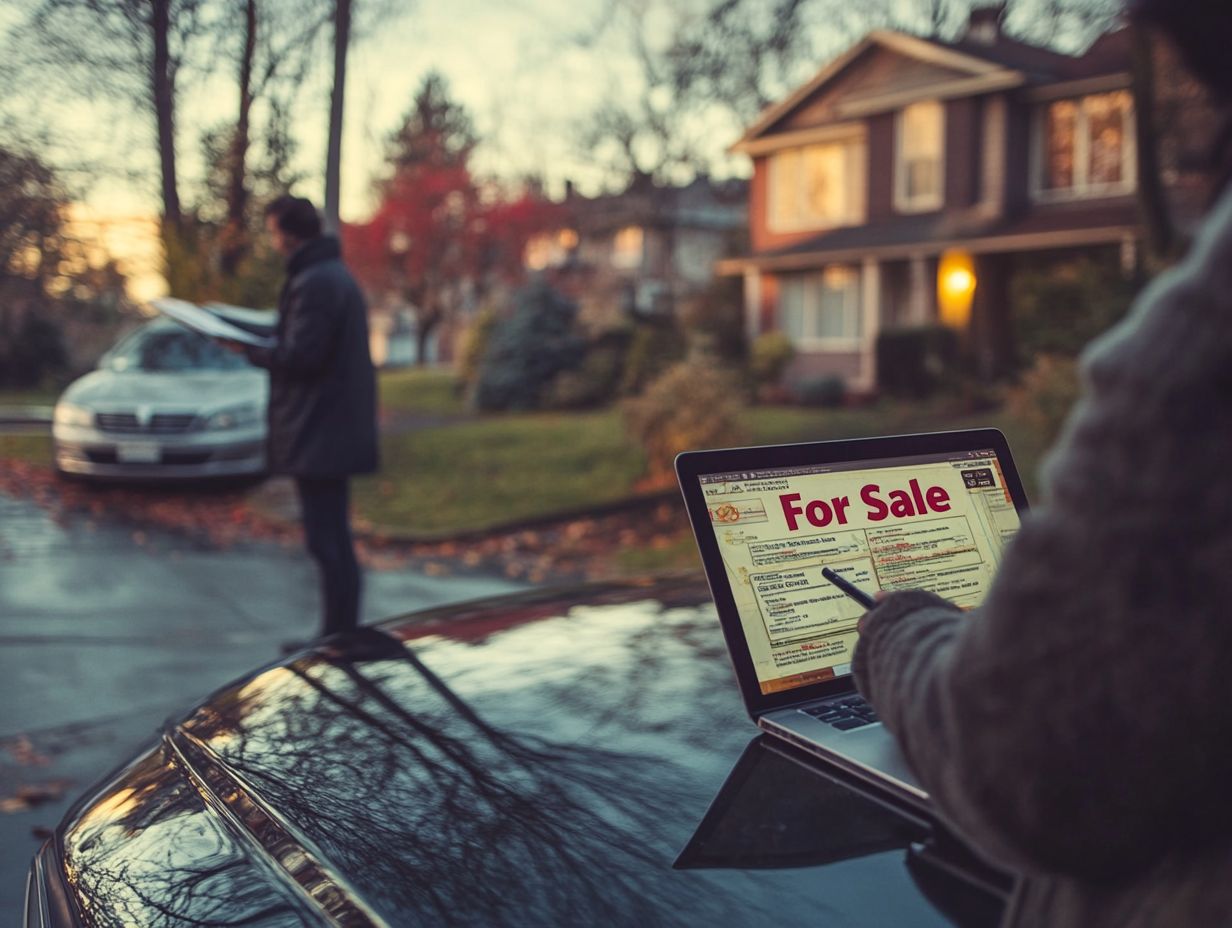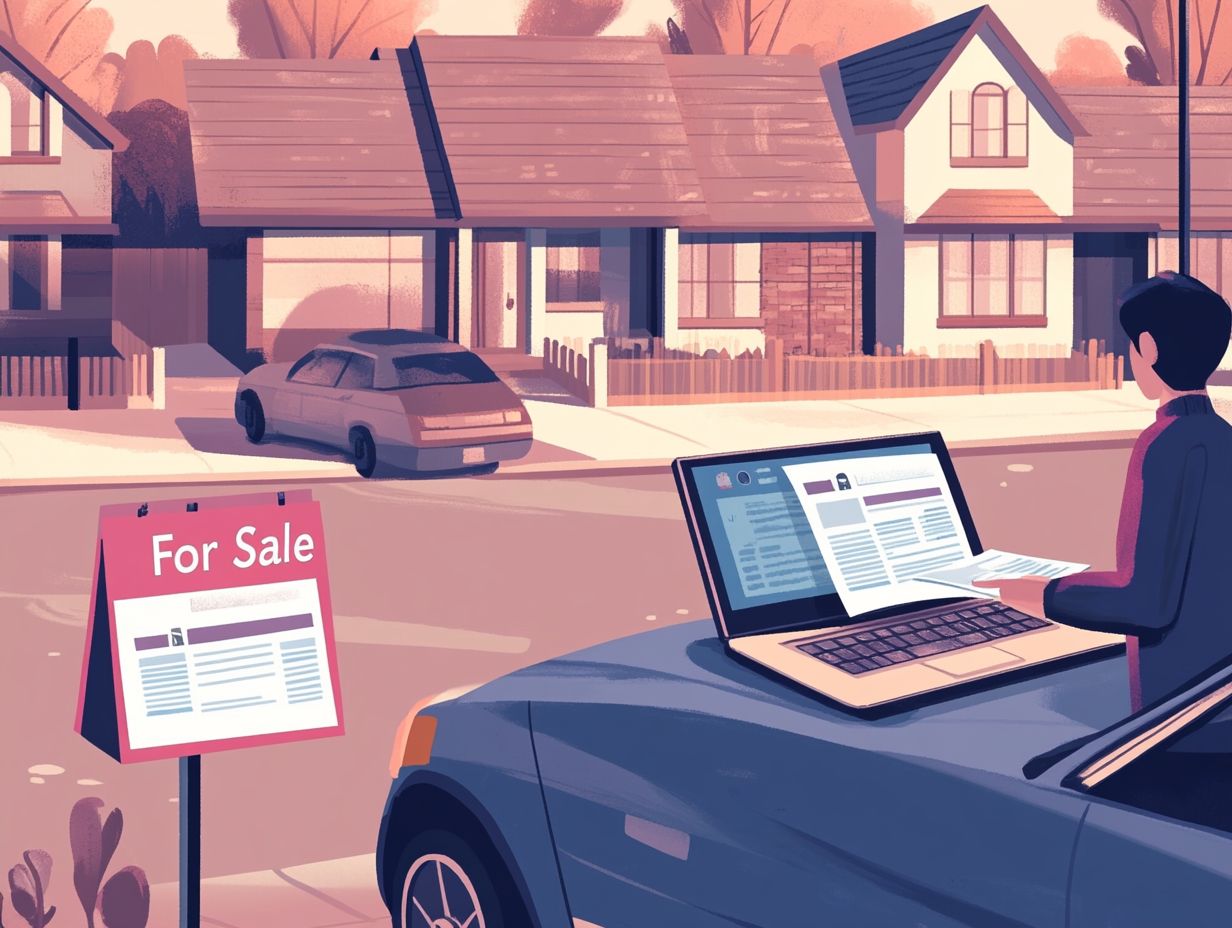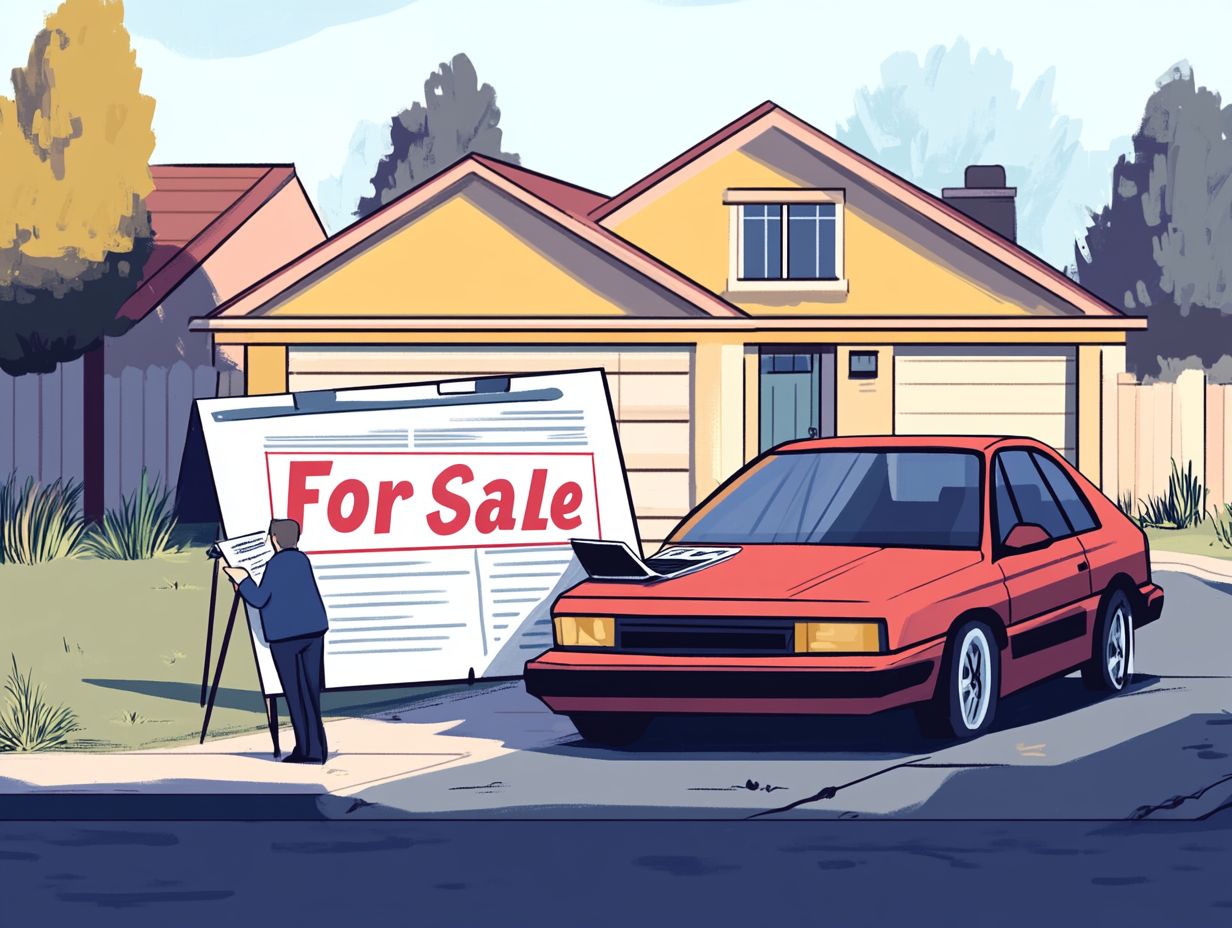The Importance of Coverage When Selling Your Car
When selling your car, understanding the details of insurance coverage is essential. It provides legal and financial protection while shaping the entire selling experience.
With various coverage types available, it’s crucial to find what fits your vehicle’s value and your needs. This guide will navigate coverage options, highlight key factors, and offer tips for a smooth transaction.
Contents
- Key Takeaways:
- Understanding Car Insurance Coverage
- Why Coverage is Important When Selling Your Car
- Understand Key Factors for Choosing Coverage
- How Coverage Impacts the Selling Process
- Tips for Maximizing Coverage Benefits
- Frequently Asked Questions
- What is the importance of coverage when selling my car?
- What types of coverage should I have when selling my car?
- Do I need to have coverage even if the buyer is responsible for getting their own insurance?
- Can I cancel my coverage once the car is sold?
- What happens if the buyer gets into an accident with the car before transferring ownership?
- Can I transfer my coverage to the new owner?
Key Takeaways:

- Proper car insurance protects you legally and financially, providing peace of mind for you and potential buyers.
- Consider your vehicle’s value, usage, personal needs, and budget when choosing coverage.
- Negotiate with buyers and ensure proper documentation for maximum benefits.
Understanding Car Insurance Coverage
Understanding car insurance coverage is vital for every vehicle owner, particularly regarding the value of coverage for collectible vehicles, especially when selling a car.
Different policies comprehensive, collision, and liability insurance safeguard your vehicle and finances during accidents, theft, or damage.
Every state, such as California, New Hampshire, and Virginia, has specific insurance requirements. Knowing these can help you manage costs and premiums.
Types of Coverage
Familiarize yourself with three primary types of car insurance: comprehensive, collision, and liability insurance.
Comprehensive insurance protects against non-collision incidents like theft or natural disasters. It’s crucial for those in areas prone to severe weather.
Collision insurance covers repair costs from accidents, regardless of fault. Liability insurance protects you from claims made by other drivers after an accident.
Understanding these distinctions helps you select the right coverage for your needs.
Why Coverage is Important When Selling Your Car
As you prepare to sell your car, recognizing the importance of insurance coverage is crucial. The right policy protects you during the process and offers legal and financial safety against unexpected events.
This is vital if your car has a notable accident history; potential buyers will want reassurance about its safety.
Legal and Financial Protection
Legal and financial protection is critical when selling your car. It safeguards you and potential buyers from any liabilities that may arise.
Understanding the legal protections an insurance policy offers, like liability insurance, is essential. Liability insurance covers potential claims from buyers regarding accidents or damages after the sale.
Having comprehensive paperwork like notarized bills of sale and maintenance records helps create a smoother transaction, minimizing disputes and protecting all parties involved.
Understand Key Factors for Choosing Coverage

Selecting the ideal insurance coverage for your vehicle requires careful consideration of several key factors, including the vehicle s value, your personal needs, and your budget.
By understanding these elements, you can confidently choose an insurance policy that offers the protection you need while still aligning with your financial goals.
Vehicle Value and Usage
The value and usage of your vehicle play a significant role in determining the type of insurance you should consider.
To accurately gauge your vehicle’s worth, you can turn to resources like Kelley Blue Book, which provides detailed evaluations based on your vehicle’s make, model, year, and condition. Checking local prices can also yield valuable insights into current trends and price comparisons.
The intended use of your vehicle is crucial as well. For example, personal vehicles generally require different coverage than commercial ones.
Commercial vehicles often necessitate higher liability limits due to their increased exposure.
By understanding these factors, you can tailor your insurance policy to ensure adequate protection while optimizing costs.
Personal Needs and Budget
Understanding your personal needs and budget constraints is critical when selecting car insurance. This insight allows you to find a policy that meets your requirements without straining your finances.
Evaluating factors such as your daily driving habits and the type of vehicle you drive can significantly influence your insurance options and costs. For example, if you typically drive short distances, you might find that more economical policies suit you perfectly.
Frequent long-distance travelers may require broader coverage.
Taking the time to compare various insurance providers can illuminate customer satisfaction levels and overall experiences. Reviews and customer feedback can unveil vital information about claim processing times and customer service quality.
These insights give you the power to make a well-informed decision.
By carefully considering these elements, you can protect yourself against unexpected expenses while securing the coverage that best fits your needs.
How Coverage Impacts the Selling Process
The management of your insurance can greatly impact the selling process, particularly regarding the transfer of ownership and responsibility for any damage or injury.
Understanding how to navigate this aspect can ensure a smoother transaction and protect your interests.
Transfer of Ownership and Liability
Transferring ownership of your car involves several essential steps, especially regarding responsibility and ensuring adequate insurance coverage is in place.
This process requires a solid grasp of the responsibilities associated with changes in ownership. As the seller, it’s crucial for you to complete all necessary paperwork, such as the vehicle title transfer, to avoid any future liabilities.
For buyers, confirming that their insurance is active is equally important, as coverage should remain in effect until the transaction is fully finalized.
By meticulously managing these details, both parties can safeguard themselves against unforeseen legal and financial complications, ensuring a seamless transition and peace of mind throughout the process.
Tips for Maximizing Coverage Benefits

Maximizing the advantages of your insurance while selling your car can greatly elevate both your selling experience and the satisfaction of potential buyers!
Start comparing coverage today to find the best policy for you!
Negotiating with Buyers
Negotiating with buyers is more than just discussing price. Ensure they understand the available insurance options that can benefit them and how those options relate to your existing coverage.
Engage in meaningful conversations that clarify the intricacies of the coverage. Showcase how it protects their investment and offers invaluable peace of mind. For example, illustrating scenarios where insurance mitigates risk like damage or loss during transportation can be particularly impactful.
Never underestimate the importance of exemplary customer service. Being responsive to inquiries is crucial, and taking the time to guide buyers through each facet of coverage fosters trust and builds rapport. By prioritizing clear communication and supportive interactions, you enhance negotiation outcomes and lay the groundwork for enduring relationships with your buyers.
Proper Documentation and Communication
Proper documentation and communication are vital elements in the selling process. They ensure a seamless transaction while minimizing potential disputes.
When selling a car, gather key documents. Start with the vehicle title. This document proves your ownership and is essential for transferring the title to the buyer. Don’t forget to provide a bill of sale it’s essential! This document clearly outlines the sale price and includes specific details about the vehicle, such as its Vehicle Identification Number (VIN), make, and model. This clarity fosters trust between you and the buyer.
Effective communication enhances buyer confidence and clarifies important details like insurance coverage. This way, you provide the buyer with all the information they need for a smooth handover. By being transparent about these documents and engaging in open discussions, you create an atmosphere of trust that ultimately benefits everyone involved.
Frequently Asked Questions
What is the importance of coverage when selling my car?
The importance of coverage for new drivers when selling your car is to protect yourself from potential liability and financial loss. By having coverage, you ensure that any damages or accidents that occur after the sale will not fall on your shoulders.
What types of coverage should I have when selling my car?

There are two main types of coverage that are important when selling your car: liability coverage and comprehensive coverage. Liability coverage protects you from damages or injuries caused by the car after it is sold, while comprehensive coverage covers any damages to the car itself.
Do I need to have coverage even if the buyer is responsible for getting their own insurance?
Yes, it is important to have coverage even if the buyer is responsible for getting their own insurance. There may be a gap in coverage during the transition between the sale and the buyer obtaining their own insurance.
Can I cancel my coverage once the car is sold?
It is not recommended to cancel your coverage once the car is sold. It s always better to have coverage in case of unforeseen circumstances. However, if you decide to cancel your coverage, make sure to notify your insurance provider immediately.
What happens if the buyer gets into an accident with the car before transferring ownership?
If the buyer gets into an accident with the car before transferring ownership, you may still be held liable. This is why it is important to have coverage until the transfer of ownership is complete. You can also have the buyer sign a liability release form to protect yourself.
Can I transfer my coverage to the new owner?
It is not possible to transfer your coverage to the new owner. Each individual must have their own insurance coverage for the car. However, you can assist the buyer in finding the right insurance coverage for their needs.
If you have more questions or need assistance with documentation and insurance coverage, feel free to reach out for more information!





